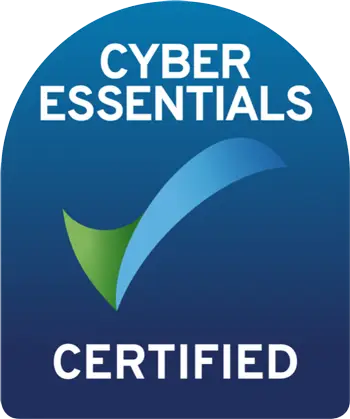In a world where consumers have become increasingly conscious of their environmental and social impact, businesses now have a responsibility more than ever before to integrate sustainability into their core values.
An independent study compiled by Smartest Energy revealed that 81% of consumers prefer to buy from sustainable sellers, while 4 out of 5 of them would describe themselves as likely to choose a brand with a positive approach to environmental sustainability.
It’s no secret that sustainable practices benefit the planet and enhance a company’s reputation and profitability. However, and we can’t stress this enough, it’s crucial that you communicate your sustainability efforts in the right way. With this in mind, we’re sharing our top tips on how to communicate your sustainability messages without falling down the greenwashing pothole.
- Understand what sustainable marketing really means
Let’s say your business is manufacturing hand tools – you’ve swapped to sustainable office stationery, turned down the thermostat and taken steps to ensure your waste products are recycled. You can definitely tell your clients how sustainable you are – right? Wrong. Being sustainable involves a complete rethink of how you work and a genuine commitment to environmental, social and governance policies (ESG).
Under the environmental policies, this includes a serious focus on preventing the emission of gases, water and ground pollution, ensuring the use of as many recycled products as possible, tracing the origins of raw materials and components, as well as good stewardship of natural resources.
Social policies include your relationships with stakeholders and your commitment to equality, diversity and inclusion – is your employee engagement up to scratch? How does your business affect the community in which it operates? Sustainability also involves looking at the working practices of all the businesses in your supply chain, not just your own!
Governance policies take a long hard look at the leadership and management of your business and your take on accountability, transparency, stakeholder rights and expectations.
It’s a big commitment, but if you get it right, it not only helps to protect the planet but will make your business better too.
- Tell the truth about what you’re doing
Once you’ve determined your business’s approach to sustainability and implemented relevant actions, you’re ready to take the first step in communicating this to your customers. However, you must ensure it is authentic.
Your customers are becoming more discerning and can quickly identify greenwashing – the deceptive act of making false or misleading statements and implementing environmentally friendly programmes or practices while not actually doing them – remember Volkswagen’s infamous ‘Clean Diesel’ campaign?!
An example of this behaviour could be a cosmetics company that trumpets its green credentials by advertising that its products are made from all-natural ingredients but fails to mention that they also contain chemicals known to be harmful to humans, or that raw materials are harvested by indigenous peoples who are mainly underpaid. An increasingly savvy customer base will immediately pick up on exaggerated claims. It will not only run riot on social media but, in the worst-case scenario, file a class action lawsuit for misrepresentation. You may not have intended to mislead, but the consequences could still be severe for your brand reputation and your company’s success.
To avoid this, you must align your marketing and communications messages with tangible, verifiable actions. Be transparent about your sustainability goals, the progress you’re making, and any setbacks – and remember (going back to point 1), there’s a big disparity between swapping to eco-friendly coffee pods in your canteen and genuinely embedding sustainable principles across your business.
- Educate
Despite many people believing that we are now in the habit of making more proactive eco-friendly decisions, the truth is we’re still not fully aware of the impact our choices have on the environment overall. This is where you and your brand can make a difference by utilising your marketing channels and educating your audience about the importance of sustainability and how your business is contributing to positive change. Create content explaining the reasoning behind the sustainable practices you’ve put in place, their impact, and how your customers can also make eco-friendly choices.
- Highlight tangible results
People want to see tangible results from their effort and the same applies to businesses engaging in sustainability. Showcase the measurable impact of your initiatives through case studies, reports, or infographics and, if you need a helping hand, then speak to our content marketing services team who are more than happy to help you with creating these. Whether it’s a reduction in carbon emissions, waste reduction, or the use of renewable energy sources, share concrete data that reinforces that what you’re doing is actually making a difference, so it’s not just smoke and mirrors.
- Shout about who you’re helping and how
Beyond environmental concerns, consumers also appreciate businesses that engage in social responsibility, including fair trade or ethical trade/pay for goods. If your sustainability efforts positively impact local communities or support social causes, shout about it – make sure it’s on your social media, send it to the local press, pop it into a blog or communicate it in an email newsletter. From sponsoring your local youth football team to making financial contributions to community groups, hosting work-experience students or having staff volunteering days – demonstrating a commitment to both people and the planet can do wonders for your brand’s image.
- Collaborate
You don’t have to do it alone. Collaborating with other businesses, NGOs, or environmental organisations to amplify your sustainability efforts is a great way to increase the visibility of your good work. Highlighting partnerships demonstrates a collective commitment to positive change and can broaden your overall impact. Just make sure that any collaborations align with your values and contribute to genuine progress. A scheme we’re currently working with is https://www.nationalforest.org/ – which means we plant a tree for every new client we welcome onboard.
At PMW, we also try to use our influence for good – when our clients come to us for support with their marketing, we will help them make more sustainable choices wherever possible.
- Make it a two-way street
Invite your customers to engage in your sustainability journey. Social media is ‘social’ for a reason, so encourage your followers to share their thoughts, ideas, and experiences related to your eco-friendly initiatives and make sure you listen and take action accordingly.
You might not be able to carry out every suggestion, but you can certainly choose the best – user-generated content on platforms such as TikTok and Meta can be a powerful tool for authentic storytelling and can build a real sense of community around your brand. After all, we all love it when someone has listened to us and changed their actions as a result.
Incorporating sustainability into your business is not just a trend; it’s a fundamental shift towards a more responsible and ethical approach. By using the power of communication that encompasses authenticity, education, and interaction with your customers, you can build a real connection with your audience and genuinely contribute to a more sustainable future.
At the end of the day, it comes down to that age-old saying: “Actions speak louder than words!”
Want help with compiling a marketing campaign to communicate your business’s sustainability practices? Give us a call!


